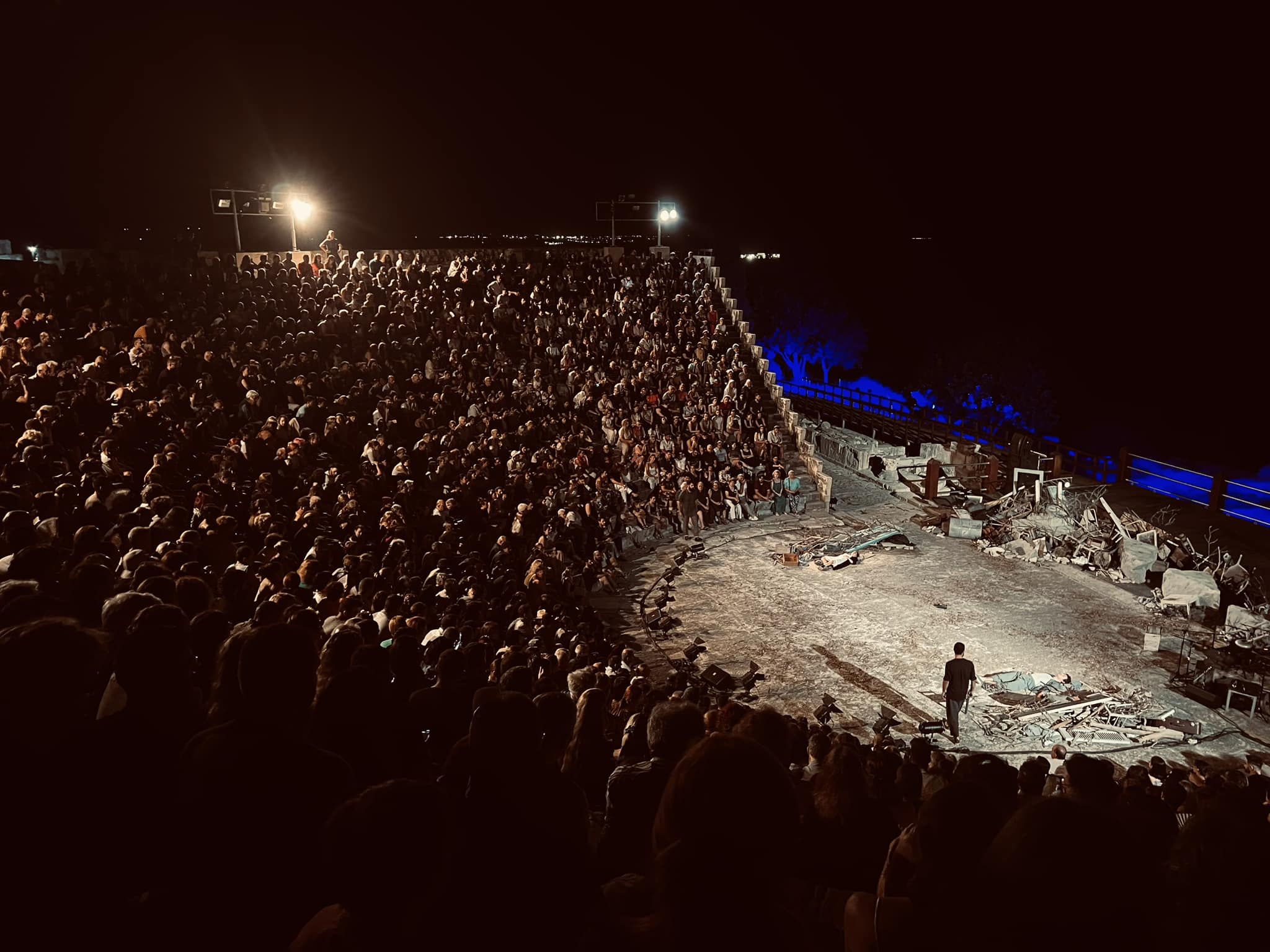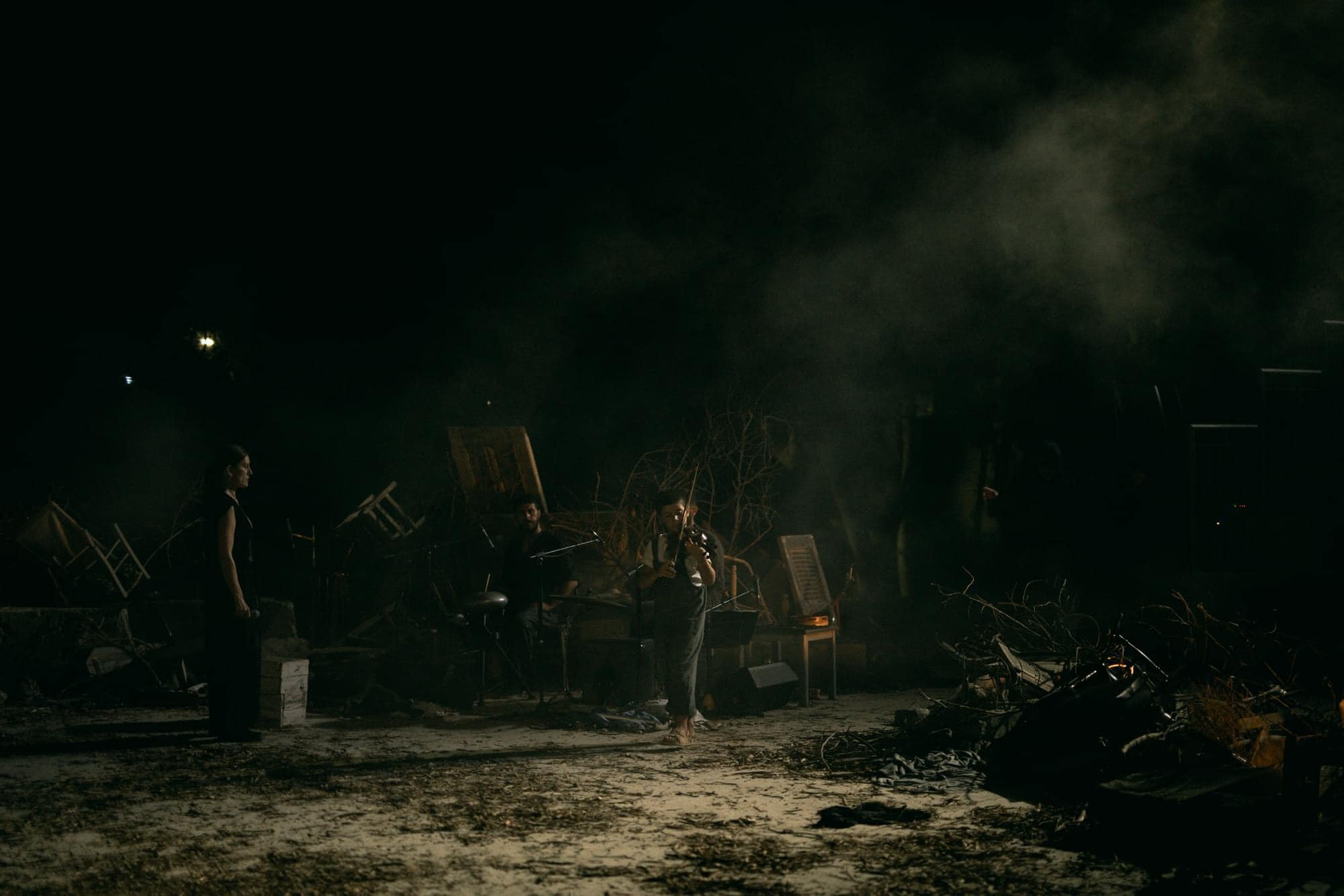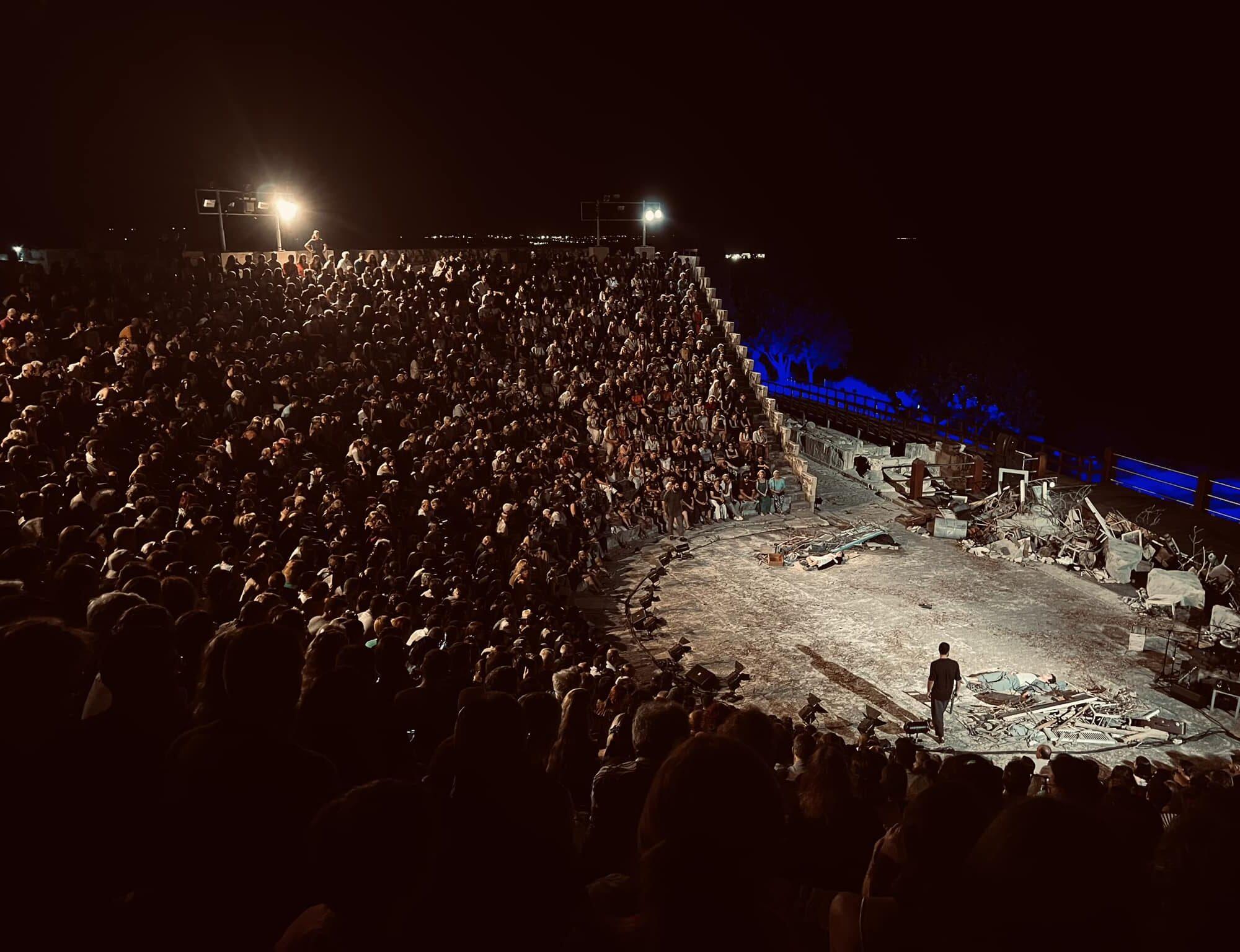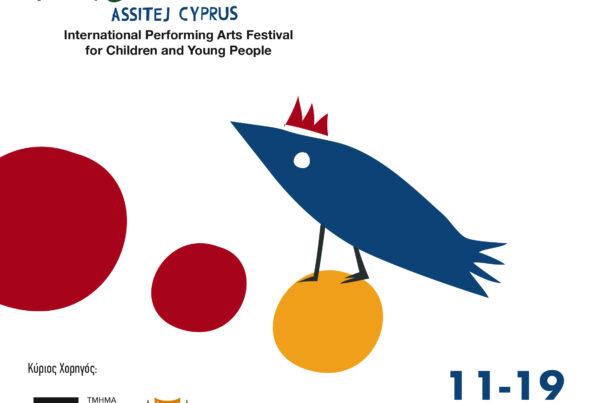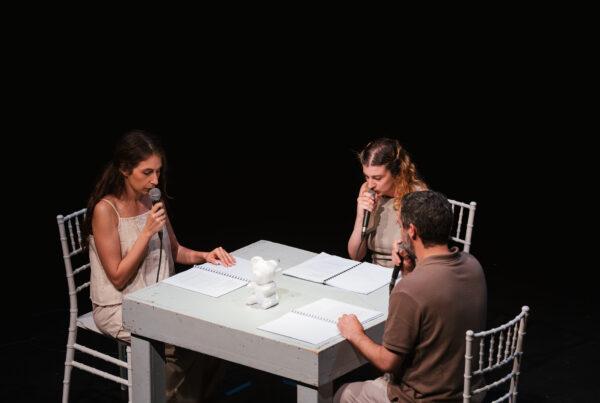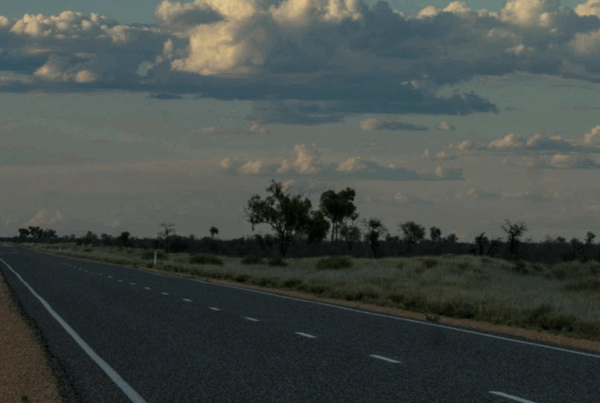Creating the first “green” production in Cyprus
It wasn’t an easy task, but it was certainly worth it! “Antigone”, which premiered on 10 July 2023 during the International Festival of Ancient Greek Drama, became the first “green” production in the history of Cyprus theatre. Its journey was one of curiosity, experimentation and definitely hope.
Working for “Antigone” was by all means a new and exciting experience for me, since it was the first time that I produced a show in which I had no artistic involvement as a writer. On top of that, it was a large-scale production which would premiere at the largest and most popular festival in the country. The International Festival of Ancient Greek Drama, organized by the Cyprus Centre of ITI for the past 25 years, hosts ancient Greek drama productions from all over the world, in different languages. The Festival has been honoured with the EFFE Label (2015-2016, 2017-2018 and 2019-2021), as one of Europe’s best festivals. “Antigone” was the only local production in its 2023 edition.
During our first discussions with Kostas Silvestros, the show’s director and a close friend of mine, he shared his vision to place Antigone’s story “in the ruins of our world”, inspired by images from the war in Ukraine and the recent earthquakes in Turkey. That was the moment I realised that this production would -both thematically and ideologically- be a great opportunity for us make use of the Theatre Green Book, which I had extensively studied in recent months in my capacity as a cultural manager. The Green Book is an initiative by the whole of the UK theatre sector – working with sustainability experts Buro Happold – to work more sustainably in the performing arts. In three volumes it sets standards for making productions sustainably, for making theatre buildings sustainable, and for improving operations like catering and front of house.
In our first production meetings, we decided that the show’s “green” aspect would start from set and costumes and would spread to all other elements of the production, as described in the Theatre Green Book. For set and costume design we worked with our close collaborator Constantina Andreou who -in recent years- has explored sustainable approaches in her practice. “Antigone” became a huge but exciting challenge for her as well.
In terms of set design, we made the decision to create a “destroyed city” using materials from the so-called “Green points”, which would have both a previous, as well as a future life. All these materials were returned to the “Green points” on the day after our last performance. Furthermore, we avoided the use of unsustainable materials like acrylic paint or plastic. As far as costumes are concerned, some of them were made using fabric from costumes used in the past, while others were bought from local business. All costumes were washed in lower temperatures than usually.
The sustainable aspect of the show expanded to all other areas of the production, including the rehearsal period, the technological equipment used, the transportation of equipment and people, as well as protection of the outdoor theatres in which the production was presented. It should be noted that all three venues were outdoor theatres, while two of them were ancient theatres.
An attempt was also made to inform and educate the public in regard to the sustainable nature of the production, as well as to promote more sustainable ways of enjoying culture. This included a big number of media appearances, the publishing of “green” advice for the public, as well as a collaboration with the company “Green Dot”, which provided us with recycling bins for the three venues. Recycling bins were also provided for the rehearsal period.
An important element of the project was that the sustainable impact of the production was measured by a sustainability-expert group of Grant Thornton Cyprus, with the results expected to be released in the following weeks. These results will give us a clear picture of the impact of the production to the environment, in comparison to previous productions.
In the period following the production, I presented the project in many occasions. In most cases we were praised for our approach; in other cases, we were criticized for shifting the burden away from the ones who are really to blame for the climate crisis and towards a sector which has little impact in the global economy. My reaction to that was that our project was a genuine decision to do something; to take an action which would put our sector centre-stage in the attempt to raise awareness on eco-related issues. An attempt which would help everyone -professionals and members of public- realize that each one of us have their own role to play, large or small.
Interestingly enough, probably the biggest challenge that we had to face was a sense of scepticism from the members of our team as well, especially in the early stages of the production. The sense of trying something new and out of the ordinary could naturally create fear and a sense of insecurity. In fact, the only part of the Theatre Green Book that we did not follow was the signing of a “green contract” by the members of the team. That was because we felt that such a move would raise more questions and possibly disturb the positive atmosphere that existed between the team members. The sustainability experts later explained to us that this was a natural reaction caused by the fear of the unknown, which makes people wonder about possible consequences in case they do not follow a set of guidelines provided, with their signatures on. On a positive note, this approach transformed into a sense of pride for our projects by all the team members towards the end of the production.
Looking back at the whole process, this project will certainly affect the way in which I will be producing culture in the future. Even in cases in which the Theatre Green Book is not used, a more sustainable way of making culture will definitely prevail through a gradual change in the mentality of cultural professionals and audiences. It might be true that our sector does not have the power to change much on its own. For us, though, “Antigone” was a first step. A little step but still the first step! And -as Antigone herself- we feel proud that we stood up for what we consider important. And that’s definitely something!
Stavros Stavrou
President, ASSITEJ Cyprus

